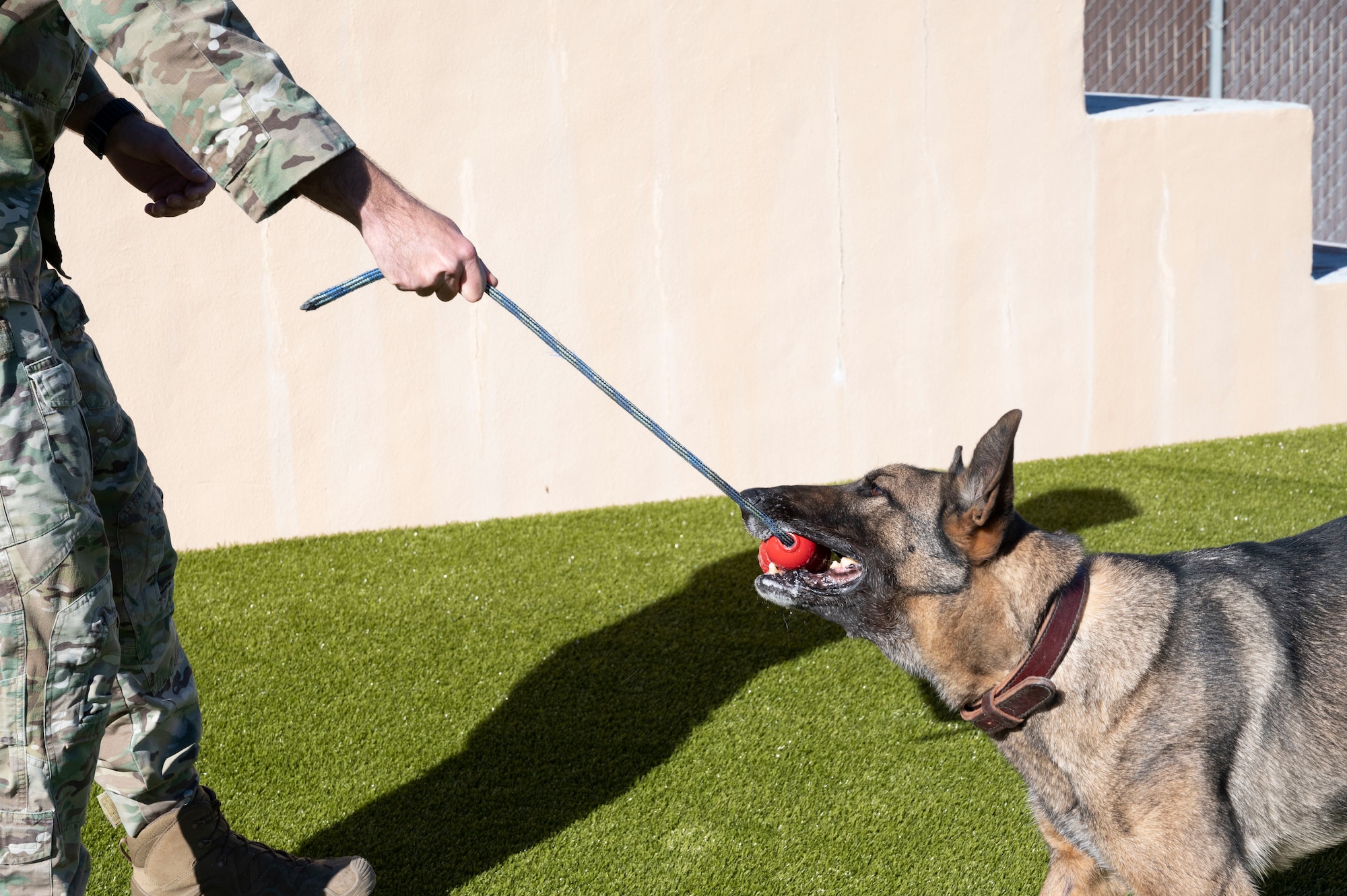Necessary Canine Training Techniques for a Life Time of Good Habits
Reliable pet training is fundamental to promoting a mannerly friend that enhances our lives. Crucial methods, such as positive reinforcement and regular command training, not only enhance obedience yet likewise strengthen the bond in between owner and pet dog. Understanding canine actions and using socializing methods can protect against potential concerns prior to they emerge. Nevertheless, the journey does not end with fundamental commands; dealing with behavior obstacles needs a nuanced method that many neglect. What are the essential aspects that can transform your training experience and guarantee lasting results?
Comprehending Pooch Behavior

Additionally, understanding the innate instincts and drives of a pet-- such as victim drive, social interactions, and territorial habits-- makes it possible for fitness instructors to expect and handle certain behaviors. A pet dog with a strong target drive might require various methods than one that is much more socially inclined.
In addition, early socializing and direct exposure to numerous environments considerably influence a pet's actions and character. Positive experiences throughout important developing periods can bring about well-adjusted grown-up pets, whereas adverse experiences might lead to stress and anxiety or aggression.
Favorable Support Approaches
Amongst the various canine training techniques, favorable reinforcement approaches stand out for their effectiveness and capacity to strengthen the bond between dog and instructor (Ohana K9 Academy). This method emphasizes satisfying preferred actions as opposed to penalizing unwanted ones, promoting a more participating and trusting relationship
Positive support can take many forms, including deals with, praise, playthings, or playtime. The secret is to supply prompt benefits when the dog exhibits the preferred habits, enabling them to make the connection in between the action and the positive outcome. For instance, if a pet dog rests on command, offering a reward immediately reinforces that behavior, making it more probable to be duplicated.
Consistency is vital in positive support training. Trainers should utilize the very same cues and benefits to stay clear of perplexing the pet. In addition, varying the benefits can maintain the pet's passion and inspiration, transitioning from regular deals with to periodic appreciation or play as the pet dog masters the habits.

Basic Command Training
Building on the foundation established through favorable support approaches, basic command training works as a critical action in creating an accommodating canine. This training normally incorporates necessary commands such as "sit," "remain," "come," and "down - Ohana K9 Academy." Each command plays a vital function in fostering reliable communication in between the pet dog and its proprietor, boosting the general bond
To initiate fundamental command training, choose a quiet atmosphere without interruptions. Begin with brief, focused sessions lasting no even more than 5 to 10 mins to maintain your canine's interest. Use high-value deals with as rewards, ensuring the dog connects correct habits with favorable results. When educating a command, use a clear, regular verbal hint come with by hand signals to strengthen understanding.
Persistence is crucial; dogs might call for numerous reps to realize commands fully. Slowly increase the complexity by presenting variants or distractions when your canine reliably useful link responds. Regular method strengthens learned commands, solidifying them in your canine's habits arsenal. Ultimately, basic command training not just promotes obedience however likewise improves safety and assists in satisfying communications during strolls and play, preparing for even more advanced training techniques in the future.
Socialization Techniques
In the world of pet continue reading this training, socializing methods are necessary for cultivating a well-adjusted and positive canine buddy. Efficient socialization involves exposing your pet to a range of environments, individuals, and other pets in a controlled and favorable way. The primary goal is to aid your pet dog develop a convenience degree with diverse experiences, which can substantially lower concern and anxiety in strange circumstances.
Begin socializing during the critical developing window of 3 to 14 weeks, when pups are most responsive to brand-new experiences. Introduce your canine to various settings, such as parks, metropolitan locations, and homes with other pet dogs. Guarantee these encounters are positive by making use of treats and praise to strengthen excellent habits.
Team training classes are an exceptional way to subject your canine to other pets and people in a structured setting. This permits monitored interactions, helping your dog discover suitable social hints. Routine trips and playdates with courteous dogs can additionally boost social skills.
Dealing With Behavioral Problems
Addressing behavioral issues in pet dogs is a vital aspect of training that requires a methodical strategy and understanding of canine behavior. Common concerns such as barking, chewing, aggression, and stress and anxiety can stem from numerous variables, including lack of socializing, insufficient exercise, or even medical problems.

Additionally, establishing a structured routine that includes regular workout and mental excitement can substantially reduce behavioral issues. Interactive toys can maintain a pet involved and minimize damaging tendencies. In cases helpful hints of extreme hostility or anxiety, talking to a specialist canine instructor or a veterinary behaviorist might be required.
Conclusion
In final thought, efficient dog training methods, including positive reinforcement, standard command training, and socialization, are essential for fostering great behavior throughout a pet dog's life. Dealing with behavioral concerns with a systematic technique not only improves obedience yet also enhances the bond in between pets and their owners. By carrying out these methods constantly, dogs can establish right into well-adjusted friends, with the ability of navigating various atmospheres and communications with self-confidence and convenience. Thus, establishing a foundation for a harmonious relationship is necessary.